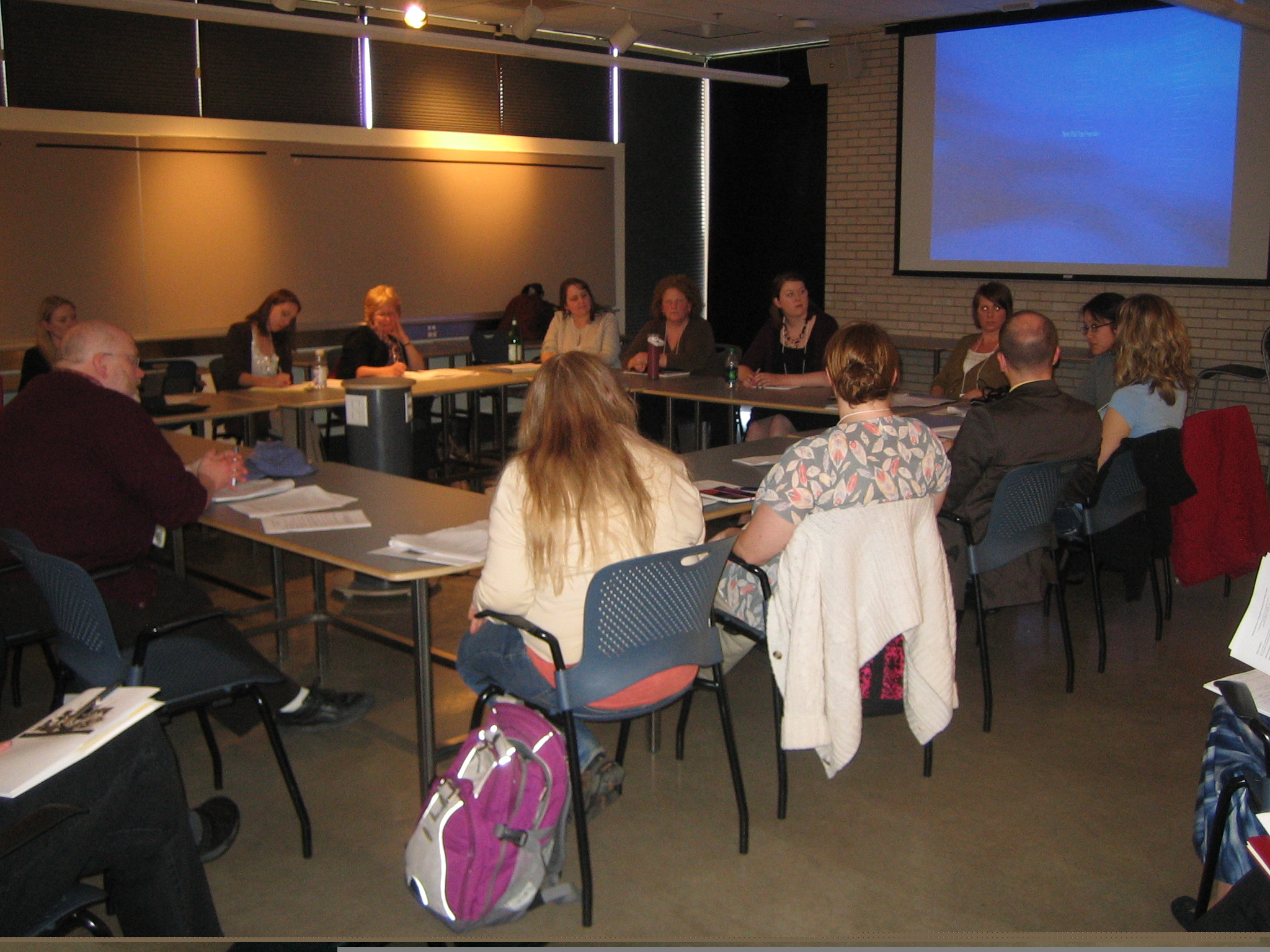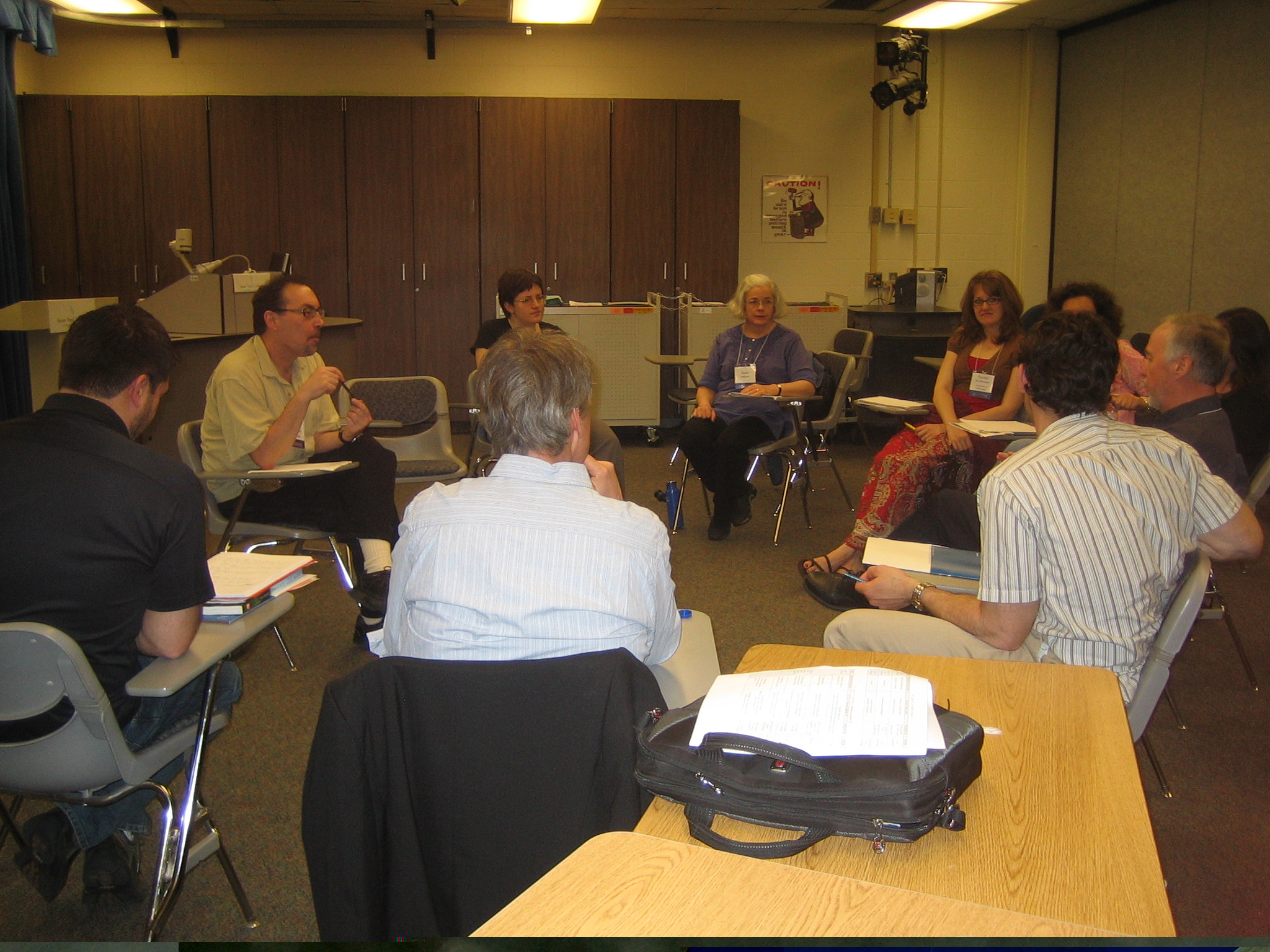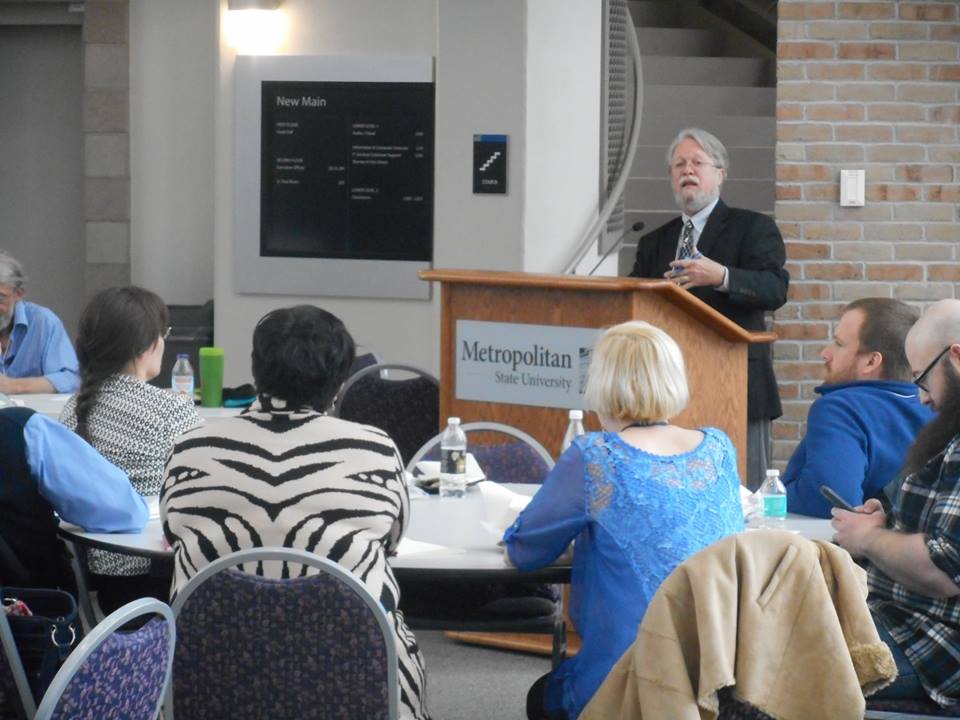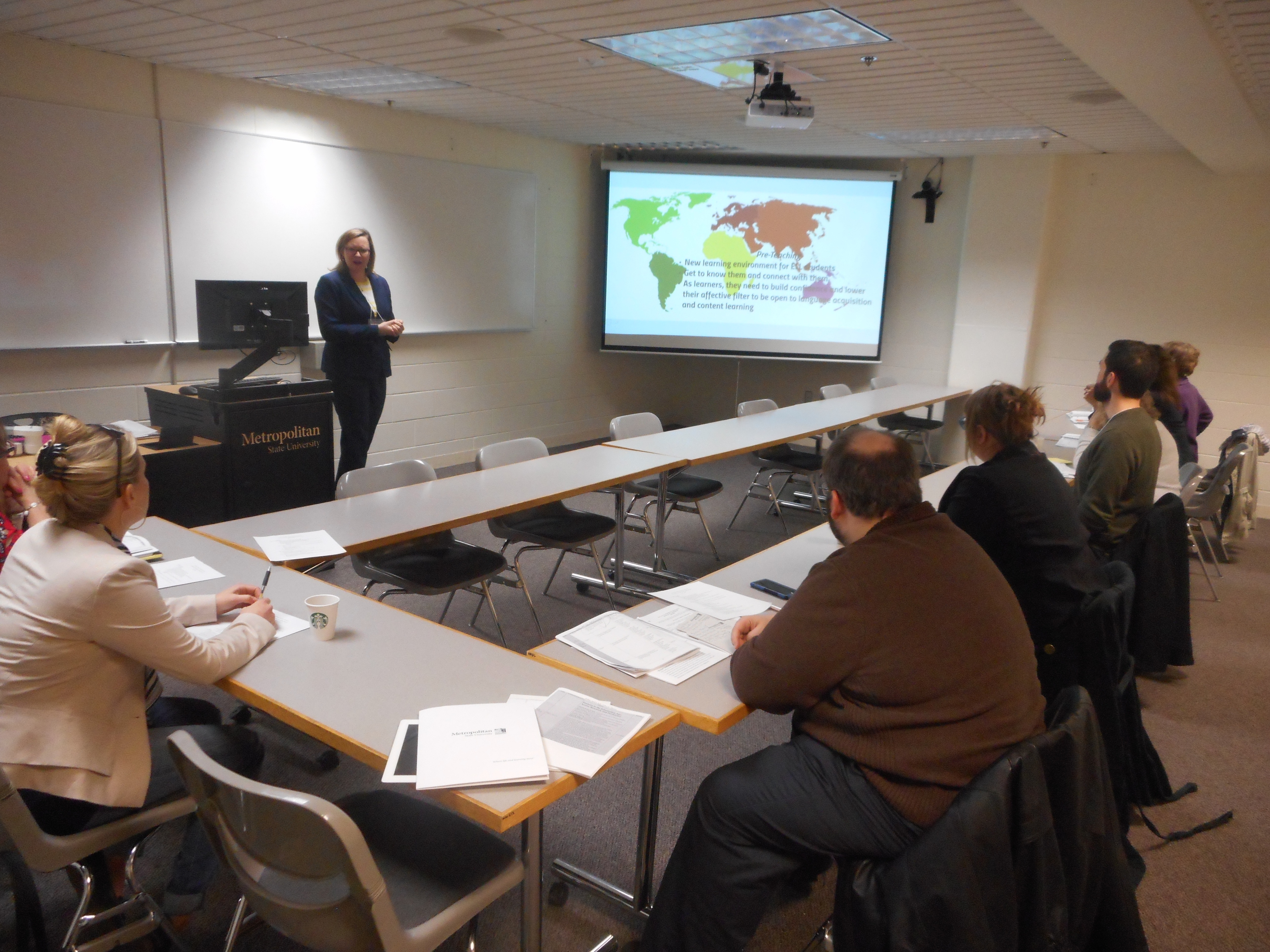|
“MnWE News”
Late Summer
Issue,
July-Aug. 2017
In this issue:
1. 2018
MnWE CONFERENCE:
UNIVERSITY OF
MINNESOTA
“POINTS OF THE COMPASS: ETHICS
OF OUR TIME”
2. CHRONICLE
STARTS NEW
TEACHING
NEWSLETTER
3.
TIPS:DISCOVERING
STUDENTS’
VOLITIONAL
STRATEGIES
4.
REVIEW: TOO MUCH
NEGATIVITY IN
MODERN-TRADITIONAL
LITERARY CRITICISM?
5. About
MnWE:
Forwarding the
News,
Joining/Leaving,
Grad Credit,
Representatives
---
If you are a
MnWE
representative,
please forward
this email to
colleagues
in
English/Writing
and related
fields. Many may
not be on the
email list.
If you are a
long-term member
of this
listserv, thank
you
for your
continued
participation.
If you are new,
welcome! Our
listserv
listserv
emails are sent
to about 2500
English,
Writing, and
related Upper
Midwest faculty.
To join, send a
request to the
editor at
richard at
jewell dot net.
Our website is
www.MnWE.org.
You are welcome
to attend our
next Committee
meeting 3:30 pm
Fri.,
Sept. 22, in 235
Nolte Hall at
the University
of Minnesota.
–Richard J.,
Editor
---
1. 2018 MnWE
CONFERENCE:
UNIVERSITY OF
MINNESOTA,
“ETHICS OF OUR
TIME”
Welcome
back to another
academic year of
teaching! The
MnWE Committee
would like you
to know that the
Tenth Annual
MnWE Conference
in 2018 will, on
Friday-Saturday,
March 23-24,
return to where
the Conference
started, the
University of
Minnesota, this
time on the
Minneapolis
east-bank
campus. The
rather topical
theme for 2018
is “Points of
the Compass: The
Ethics of Our
Time.” As the
country and
world develop
deepening
ethical
questions in our
culture and
politics, we in
English,
Writing, and
related fields
find ourselves
asking what our
responses should
or should not
be. The spring
2018 conference
will explore
this and related
ideas and
activities –
anything you
would like to
explore. We will
send our call
for papers and
information
about sending us
your proposals
in the next
month or two.
What could you
present on
ethics or on
other ideas and
activities? What
are you trying
out in your
classrooms that
would be ready
for presentation
by spring?
---
2.
CHRONICLE OF
HIGHER EDUCATION
STARTS NEW
TEACHING
NEWSLETTER
The
Chronicle of
Higher Education
just
announced its
new online
“teaching-learning”
newsletter. If
you’d like to
subscribe free
of charge, see
the link below.
One of the
subjects in the
first issue is
several ways in
which to make
your course
syllabus more of
an interactive
or otherwise
better-learned
event. There’s
also a link to
132 photos of
classrooms “specially
designed to
foster active
learning”
at Vanderbilt
University. Also
available are
links to
discussions
about the pros
and cons of the
California State
University
system’s new
decision to drop
placement tests
and non-credit
remedial
courses, as well
as two other
states’ similar
recent changes.
---
www.chronicle.com/article/Teaching-Newsletter-August/240880?cid=cc&utm_source=cc&utm_medium=en&elqTrackId=
7c4637315ad642b08e435b96ef72bc75&elq=266341f062514a549f68a
723a4ab7cbc&elqaid=15160&elqat=1&elqCampaignId=6459
---
3. TIPS: DISCOVERING STUDENTS’ VOLITIONAL STRATEGIES
A recent article
by the
University of
Texas’ Marilla
Svinicki
featured in
“Tomorrow’s
Professor
eNewsletter”
discusses how we
can discover
students’
volitional
strategies for
better success
in college.
Svinicki defines
volition as “the
ability to move
a task forward
once the
intention to
tackle it has
been invoked.”
She uses a
survey developed
by psychological
researchers in
which each
question of
students begins,
“When I am
unable to get
started on my
assignment or if
I get
distracted,” and
then has
students offer
answers in three
general
categories of
their lives: how
they study
better, “reduce
emotional
responses to
stress,” and
“imagine the
consequences of
finishing or not
finishing the
study task.”
Svinicki then
has her students
discuss their
answers. The
survey can be as
complex or as
simple as you
want – and if
you want the
original,
Svinicki
provides the
source. Perhaps
the real genius
of her method,
however, is to
have us,
faculty, solicit
answers from our
own students,
publish the
class results
(anonymously),
and then ask
students to
discuss them.
The same sets of
questions might
also be assigned
to small groups
for discussion
with each group
reporting its
results and
reactions.
---
“Volition: When
the Going Gets
Tough, What Do
Good Students
Do?” National
Teaching and
Learning Forum.
Reprinted in
“Tomorrow’s
Professor,”
https://tomprof.stanford.edu/posting/1567
---
4.
REVIEW: TOO MUCH
NEGATIVITY IN
MODERN-TRADITIONAL
LITERARY
CRITICISM?
In the
2016
Chronicle
article “What’s
Wrong with
Literary
Studies?” Marc
Parry describes
how Virginia
professor Rita
Felski and
others posit a
new culture war
of sorts. On the
one hand, older
or more
modern-traditional
scholars have a
“habit of
approaching
texts like
suspicious
detectives on
the hunt for
hidden
meanings,” says
Felski. On the
other, a loosely
composed
“post-critical
reading” group
of younger and
less traditional
scholars are
accepting
“humanist” ideas
related more to
enjoyment of
reading and to
students’
current
sociological and
psychological
interests.
Parry
says that Lisa
Ruddick, whose
1990
psychoanalytic
study of
Gertrude Stein
established her
in literary
studies, calls
the
old-fashioned
studies a “kind
of professional
groupthink.”
Parry further
delineates such
studies by
adding,
“Felski’s
message boils
down to
prefixes.
Literary critics
have emphasized
‘de’ words, like
‘debunk’ and
‘deconstruct.’
But they’ve
shortchanged
‘re’ words –
literature’s
capacity to
reshape and
recharge
perception.”
According
to Parry, Felski
believes
teaching of
literature
should involve
people in why
they are
attracted to
certain literary
works, what
these works have
to say to them,
and how they
communicate with
generations of
readers in
positive ways.
Felski says,
“Critics should
describe the
full range of
motivations that
drive people to
take up
literature.” She
adds, for
example, that
people read for
“recognition”
(“self-understanding”),
“enchantment”
(“escapism”),
and “shock.” She
says, “Our
attitudes to
artworks are
much more
unpredictable
and surprising
than a lot of
social theories
allow for…. And
therefore we
need to look at
these specific
examples of a
relationship to
an artwork. A
lot of specific
examples are
going to explode
our [old]
theories rather
than confirm
them."
In
addition, along
with Parry, we
might consider
how most
beginning
literary
students want to
write about a
work of art.
Often they hope
not to debunk or
otherwise tear
it apart, but
rather to
explain why and
how it works
well, placing in
their own
milieu.
Critics
of Felski,
Ruddick, and the
post-critical
reading movement
say, according
to Parry, that
only the worst
of traditional
critics are
groupthink bound
in always
finding
something
negative to
interpret or
find hidden in
literature. For
example, Bruce
Robbins of
Columbia says
the
post-critical
reading movement
scholars do not
look at positive
manifestations
of traditional
critiquing:
Felski is “not
paying attention
to the many
varied and
extremely
interesting ways
in which
people’s
positive
appreciation is
part of their
critical
practice.”
Others suggest
that the
post-critical
movement is, in
part, bending to
pressures to
gain more
students in
English
departments
whose offerings
– and students’
interests – are
dwindling.
---
---
FORMATTING,
INVITATION, &
CREDITS:
These listserv
emails usually
are formatted in
a simple way
using html. If
you cannot read
them, please go
to the link at
the top to see
them on the web.
If you
have any
questions, we
invite you to
email any of us
on the
committee. You
also are always
invited to
attend any of
our five MnWE
Committee
meetings per
year. You also
are invited to
offer
suggestions—or
volunteer your
leadership—for a
special or
double section
at the annual
conference.
This
newsletter is
written
primarily by
Richard Jewell
without
copyright so
that anyone may
quote,
paraphrase, or
forward any or
all of it
freely. We ask
only that you
give credit to
the “MnWE
Newsletter”
and/or “www.MnWE.org“;
and when you use
material that
has been quoted
or paraphrased
in this
newsletter from
other sources,
please be sure
to give proper
credit to the
original
source.
REPRESENTATIVES:
Representatives
(as listed
below), please
forward each of
these emails:
many of your
writing and
English
colleagues may
not be on this
listserv.
Potential
volunteer
representatives:
We always
appreciate
hearing from you
if your school
has no rep. See
the
“Representatives”
list below, and
if no one at
your school is
on it, please
volunteer! Email
richard at
jewell dot net.
We are
especially
looking for reps
from Greater
Minnesota,
Canada, Iowa,
North and South
Dakota, and
Wisconsin.
---
---
Richard Jewell, Larry Sklaney, Danielle Hinrichs,
Anthony Miller, and Gordon and Beata Pueschner, Coordinators
Richard
at jewell
dot net
- (612) 870-7024
larry
dot
sklaney
at
century
dot edu
- (651) 747-4006
danielle
dot
hinrichs
at
metrostate
dot edu
- (651) 999-5960
a
dot
miller at nhcc
dot edu
gordon
dot
pueschner
at
century
dot edu - (651) 686-4468
beata
dot
pueschner
at
anokaramsey
dot edu
– (651) 686-4468
MnWE.org
Minnesota
Writing &
English
A Consortium of
Colleges &
Universities
|

Mission:
Transforming
writing and
English
into teaching
and learning
experiences
using
methodologies
that serve
students best.
Vision:
Bringing
scholarly ideas
and practical
pedagogy
together to
create our
futures.
.JPG)
Donald Ross of
the University
of
Minnesota and
Taiyon Coleman
of St. Catherine
University run a
breakout session
about
literature.

Geoffrey Sirc of
the University
of Minnesota
runs a small
breakout after
his keynote
presentation.

MnWE started in
2007.
The cofounders
were Richard
Jewell, here
giving a welcome
after lunch, and Donald
Ross, first
picture above.

During a 2016
breakout,
Beata Puschner
presents
on improving
classroom
inclusion of ELL
students.
|


.JPG)


